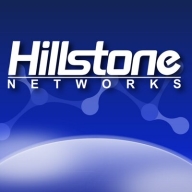


Netgate pfSense and Hillstone T-Series are two prominent firewall solutions. Based on user reviews, Netgate pfSense is favored for its affordability, while Hillstone T-Series excels in advanced features, making it often considered worth the higher price.
Features: Users appreciate Netgate pfSense for its reliable performance and open-source nature. Hillstone T-Series is recognized for its comprehensive security features and sophisticated threat intelligence. The advanced features of Hillstone T-Series give it a noticeable advantage.
Room for Improvement: Netgate pfSense users suggest enhancements in hardware compatibility and additional support for high-speed networks. Hillstone T-Series users call for simpler configuration processes and more detailed documentation. Hillstone’s configuration complexity is a significant drawback.
Ease of Deployment and Customer Service: Netgate pfSense is often reported as easy to deploy with strong customer support. Hillstone T-Series deployment is more challenging, and users find customer service less responsive.
Pricing and ROI: Netgate pfSense is praised for low setup costs and good ROI. Hillstone T-Series, though more expensive, provides a high ROI due to its robust features. Netgate pfSense is more cost-effective, but Hillstone's advanced features justify its higher price for many users.
| Product | Market Share (%) |
|---|---|
| Fortinet FortiGate | 20.4% |
| Netgate pfSense | 10.8% |
| Hillstone T-Series | 0.1% |
| Other | 68.7% |



| Company Size | Count |
|---|---|
| Small Business | 350 |
| Midsize Enterprise | 130 |
| Large Enterprise | 187 |
| Company Size | Count |
|---|---|
| Small Business | 166 |
| Midsize Enterprise | 33 |
| Large Enterprise | 28 |
Fortinet FortiGate excels in providing integrated VPN, firewalling, and Unified Threat Management (UTM) with centralized management and high availability. It supports remote access and comprehensive threat protection, making it a preferred choice for securing networks.
Fortinet FortiGate offers a robust security platform with features such as strong intrusion prevention, application control, and web filtering. Its integration with Active Directory and SD-WAN functionality provides scalable solutions for large networks. Users appreciate its ease of use through centralized management interfaces, ensuring robust security with flexible configurations. However, FortiGate could enhance its graphical interface and technical support responsiveness, address firmware bugs and costly licensing, improve logging, integrate better with third-party tools, and strengthen scalability and memory for log storage. Complexity in configuration and the need for intuitive features are noted challenges, and there's a demand for advanced security, zero-trust capabilities, and AI integration.
What are the key features of Fortinet FortiGate?Fortinet FortiGate is widely implemented across industries like education, finance, and government. Companies use it for firewall protection, VPN, and SD-WAN capabilities, ensuring secure perimeter and data center security. It facilitates remote access management and traffic routing optimization, offering reliable security and connectivity solutions.
Hillstone’s T-Series intelligent Next-Generation Firewall (iNGFW) uses three key technologies to detect advanced attacks and provide continuous threat defense for today’s networks. First, it uses statistical clustering to detect unknown malware, leveraging the patented Hillstone Advanced Threat Detection engine (ATD). Second, it uses behavioral analytics to detect anomalous network behavior, which is based on the Hillstone Abnormal Behavior Detection engine (ABD). Finally, it leverages the Hillstone threat correlation analysis engine to correlate threat events detected by disparate engines – including ATD, ABD, Sandbox and other traditional signature-based threat detection technologies – along with context information to identify advanced threats.
Netgate pfSense is widely leveraged by organizations for its comprehensive capabilities in firewalls, VPN servers, and bandwidth management. It suits LAN, WAN, and DMZ networks, offering secure, scalable, and efficient networking solutions.
Netgate pfSense stands out in diverse environments with its enterprise-grade features and cost-effective operations compared to competitors like Cisco. Deployed as an edge device, it optimizes routing, ad-blocking, content filtering, and traffic shaping. Users benefit from its versatile configurations, robust firewall protection, VPN functionality, and ISP load balancing. The open-source nature allows for extensive customization, integrating plugins like Snort and pfBlockerNG, and compatibility with third-party tools enhances its utility. The intuitive GUI combined with detailed logging and centralized management fortifies network security.
What features define Netgate pfSense?
What benefits should be considered for ROI?
Organizations in industries such as finance, healthcare, and education find Netgate pfSense integral due to its advanced security features and cost benefits. Its scalable architecture and strong VPN support are crucial for industries requiring stringent data protection and reliable remote access. The adaptability of pfSense makes it suitable for dynamic environments seeking comprehensive, secure networking solutions.
We monitor all Firewalls reviews to prevent fraudulent reviews and keep review quality high. We do not post reviews by company employees or direct competitors. We validate each review for authenticity via cross-reference with LinkedIn, and personal follow-up with the reviewer when necessary.